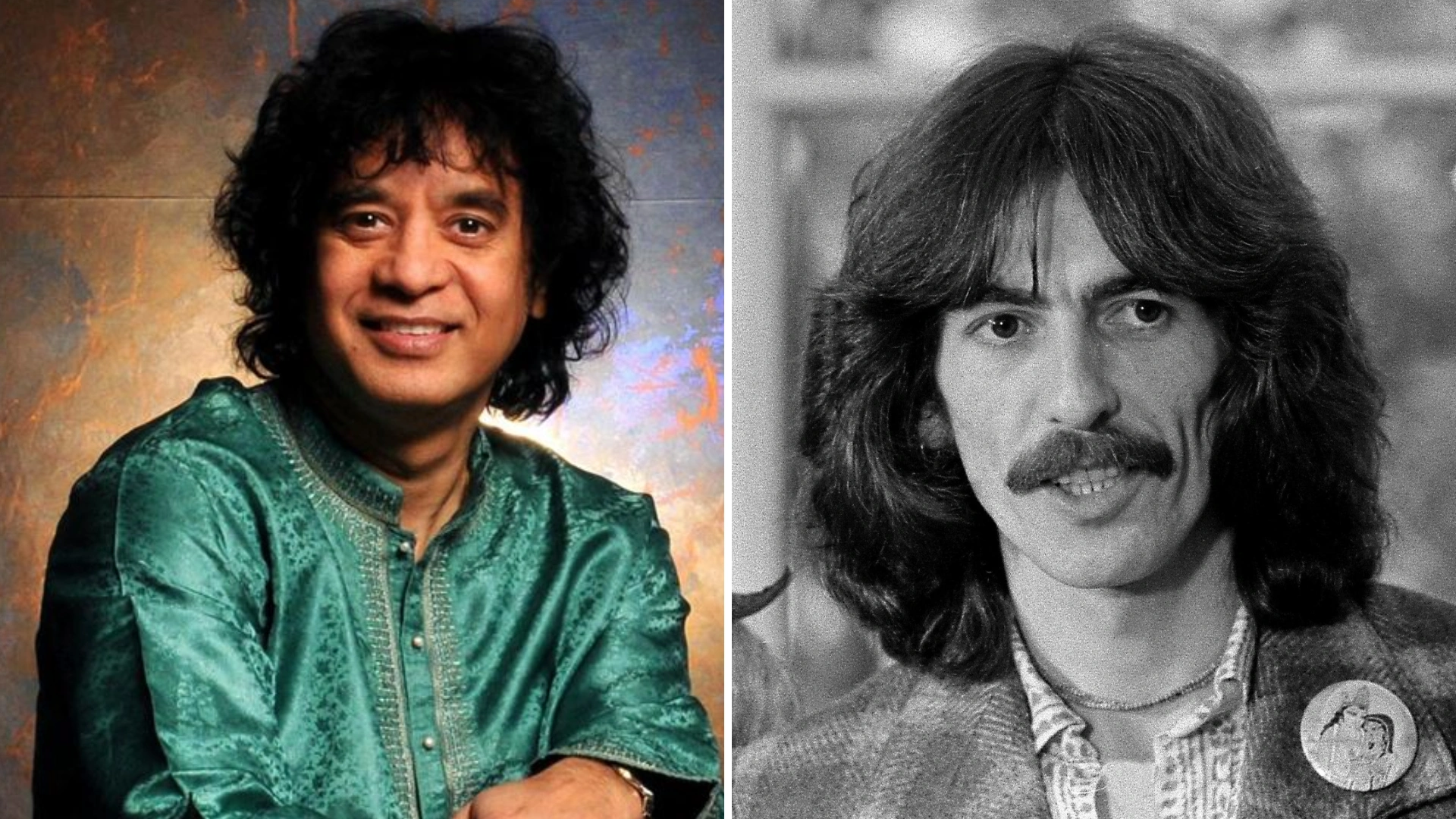Renowned tabla virtuoso Zakir Hussain passed away on December 15 at the age of 73 in a San Francisco hospital, his family confirmed. Hussain had been hospitalized for two weeks and was in the ICU due to complications from idiopathic pulmonary fibrosis, a chronic lung disease.
Born on March 9, 1951, in Mumbai, Hussain was the eldest son of iconic tabla maestro Ustad Alla Rakha.
Collaboration with George Harrison: A Turning Point
Zakir Hussain’s career reached international heights, thanks in part to George Harrison of The Beatles. During a tour with sitar maestro Ravi Shankar, Harrison invited Hussain to join him at Trident Studios in London to record Living in the Material World, the follow-up to Harrison’s critically acclaimed album All Things Must Pass.
Recalling the experience in an interview with The National, Hussain once asked Harrison why he didn’t play the sitar on the album or on stage. Harrison replied, “I don’t want to insult my teachers by playing the sitar badly on stage. It’s not my instrument, and I didn’t grow up with it. But I can take that music, transpose it onto my guitar, and show my reverence to the art form.”
Choosing Tabla Over Rock Drumming
Hussain had considered exploring rock drumming at the time, but Harrison offered him invaluable advice. “George told me, ‘You’re here because you have something unique to offer. If you want to play drums, that’s fine. But you’ll be joining thousands of other drummers trying to work their way up.’”
Hussain credits this conversation with reshaping his focus. “That moment made me drop the idea of becoming a rock drummer and dedicate myself to making the tabla express every rhythm on the planet. I’ll always be grateful to George for that guidance,” he said.
The Art of Musical Adaptability
Zakir Hussain often spoke about the importance of adaptability in music. He noted, “When you’re on a journey, you must mould yourself to the situation and let the music flow naturally. Openness allows you to interact with players across genres, creating something truly unique.”
Released in 1973, Living in the Material World showcased Harrison’s fusion of Eastern and Western musical styles, reflecting his spiritual journey. Hussain’s tabla performance was a critical component of the title track, adding depth and authenticity to its Indian-inspired sections. This collaboration highlighted Harrison’s commitment to cross-cultural exploration and Hussain’s exceptional talent.
The album was both a commercial and critical success, topping U.S. charts and reaching number two in the U.K. Critics lauded its seamless blend of influences, with Hussain’s contributions standing out for their dynamic and innovative quality.
Hussain’s work with Harrison on Living in the Material World remains a landmark in global music, illustrating the power of cross-cultural collaboration.
This partnership not only influenced music during its time but also inspired future artists to explore and celebrate diverse sounds. Hussain’s contributions continue to resonate, solidifying his place as a pioneer of tabla and global musical fusion.




